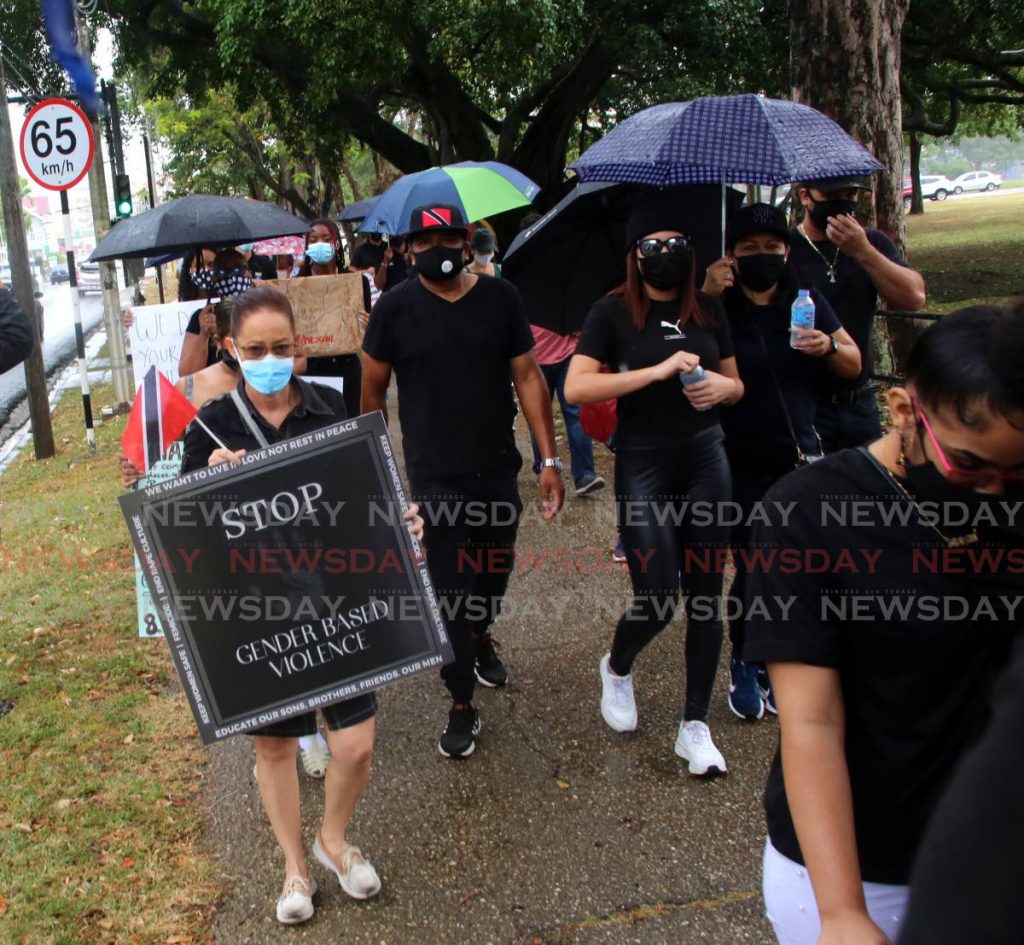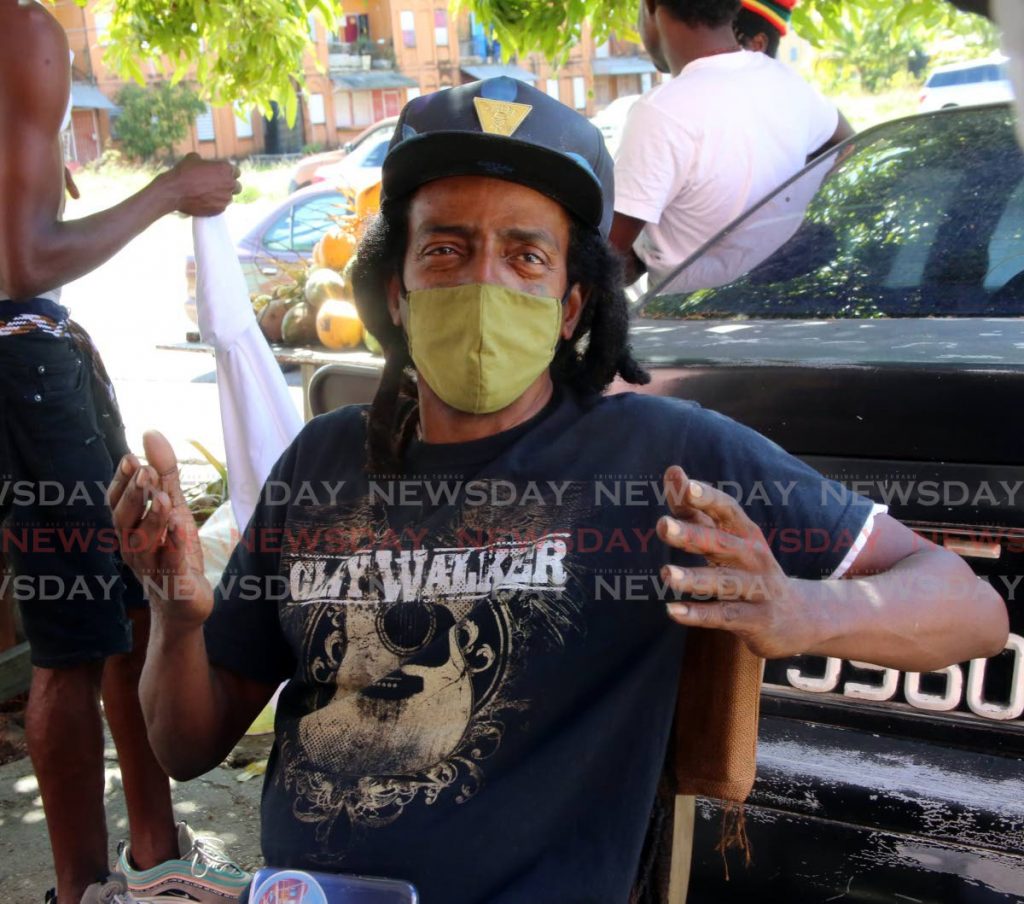Men on abusive behaviour toward women: 'Groom out the badness'

The demand for a radical change in the way men behave around women echoed across the country over the last week with sporadic groups sprouting in urban and rural areas that no more violence, obscene remarks or treatment would be tolerated.
In a quest to hear from men, particularly those from areas usually stigmatised for high crime, Sunday Newsday visited Maloney Gardens, Oropune Gardens and Duncan Street, in Port of Spain to speak with men about curbing violence against women.
Kris Khan, 20, from Duncan Street told Sunday Newsday that he, occasionally, tells his friends about their aggressive attitude towards women.
Standing with a group of men no older than him, Khan said the way to tackle violence against women is to change the culture.
“What they have to do to stop the violence is to bring the young men and women together to uplift them and teach them to respect each other. Twenty-five and under is a good age group to start from. Some people are groomed to be a certain way, they call it “badness” and "it in them.”
Khan said this “badness” is groomed in and therefore can be groomed out. He said he sometimes speaks to his friends about their behaviour but some don’t listen while others are ignored because they become aggressive.
“Sometimes when you talk to them they will say that is street girls or them is no good. If is someone from my team, I will pull them up.”
Khan said sometimes men are angered by a woman’s rejection and that hurt manifests in violence towards the woman. All of that type of behaviour, he said, is part of their grooming. Khan suggested a behavioural training camp can help young women and men learn to respect each other as one method of adapting positive values.
Keron Knights, 19, said he learned from his father Anthony Knights on how to treat women. The teenager said apart from not hitting a woman, he learnt not to pursue them but have them pursue him. He believes simple reversal of courtship roles will end violence against women.
Knights said there were times when he saw his friends harassing women and when they did not get a favourable response, the men got verbally abusive.
“When that happens I does just watch and shake my head and walk away because that is not my business.”
Going forward, he said, he will try to speak with his friends about how they interact with women.
His 75-year-old father said he never had problems with women. He was never accused and or charged with rape, sexual assault or anything untoward.
“I always like to work so I don’t have time to run down woman. When I work and I get myself in a gear they run me down. I tell my sons don’t tackle woman in the streets, let them come to you.”
Both his wife and daughter disagreed with his advice and suggested that will not curb violence against women.
The message of men “pulling up their bredrins” arose, again, following the kidnapping and murder of Andrea Bharatt. The 23-year-old’s decomposing body was found down a precipice at Heights of Aripo on February 4, six days after she was kidnapped after boarding what she believed to be a taxi at King Street, in Arima.
Negus George, 24 of Arima appeared in court on Thursday charged with murdering Bharatt while his companion, Giselle Hobson, 37, was charged with being in possession of items belonging to the court clerk.

Rajiv Budhooram, a 28-year-old PhD candidate in chemical engineering, said it is time for the conversation to be shifted from women protecting themselves to men not harming them.
Budhooram said then that men must respect women while elders must teach boys how to respect women and girls. The older men are comfortable having dehumanising conversations about women and it is the norm, he said, and that needs to change.
In Maloney, a 66-year-old man identified only as “Culture” said society is to be blamed for the violence against women. According to him, long ago the men were the breadwinners while the woman was the home-maker. Now, both are breadwinners with no one to care for the children.
Seated not to far from him was Anthony Lord, 60, who said men want to be in control. He agreed that men need to be “pulled up” adding that he, at times, will pull up his friends. To solve the problem of violence against women, he believes in the good old fashion cutarse.
“I think without corporal punishment it left a lot of room to disrespect the parents. A lot of youths grow up thinking that they could disrespect their parents and if they can disrespect them, who is the people on the block?”
In Oropune, Marcel Bengochea, 38, said one's upbringing had a lot to do with how men treat women.
“Where I come from, I did not come from an abusive background, is love I grow up with. I learn that a woman have value so I can’t support abuse of a woman at all.”
Khan believes that men who are violent towards women are groomed to be such and if they are taught that, then it can be unlearned.
“We need to get people to spread love in the hood. Give people reason, something they could believe in because they want to believe but they need to know it real. No fake promises. Not everyone get groomed like me. It’s a cycle, when one come out, one go in, so you have to teach the youths.”


Comments
"Men on abusive behaviour toward women: ‘Groom out the badness’"